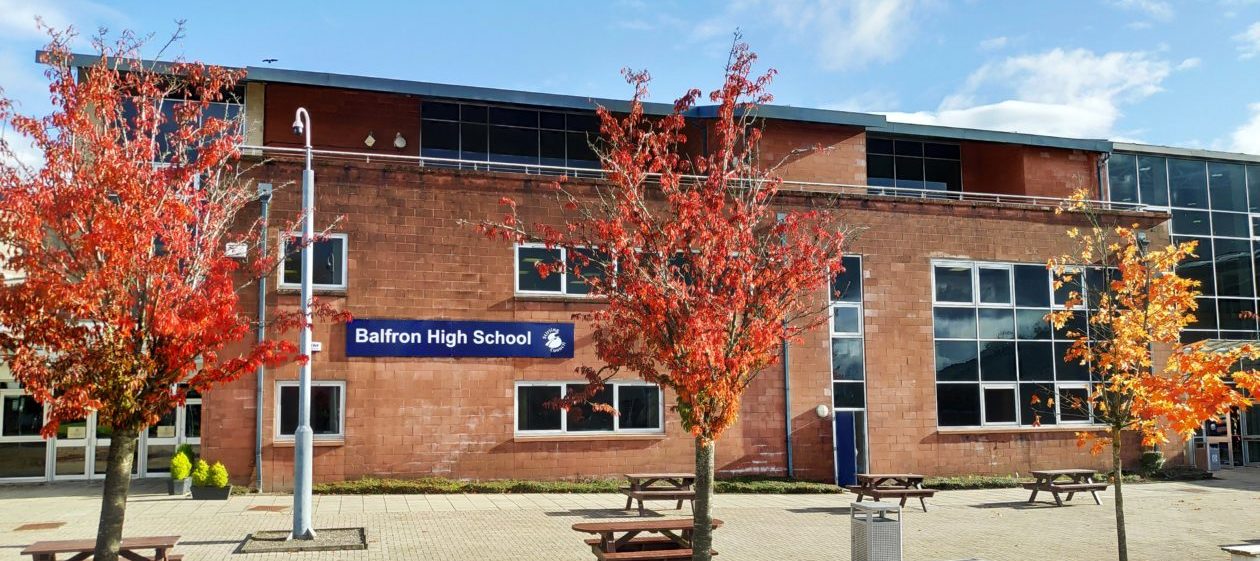What is interdisciplinary learning?
Interdisciplinary learning (IDL) is a planned approach to learning which uses links across different subjects to enhance learning.
It promotes the development and application of what has been taught and learned in new and different ways. It provides opportunities for deepening learning, for example through exploring an issue, solving problems or completing a final project. It is an important approach at all levels of Curriculum for Excellence and can take place in curriculum areas and subjects, the ethos and life of the school and community, and a range of other opportunities for personal development. It is a particularly useful way of promoting learning across the broad general education, as well as giving coherence to learning at the senior phase.
At Balfron High School examples of IDL include:
– A Remembrance Project in S1. Pupils learn about the experiences of soldiers in the Great War in History. They use this knowledge to build empathy by writing a story from the perspective of someone in the War in English. Having built this knowledge and emotional connection, the pupils then explore the power of the poppy as a powerful symbol of remembrance in Art. They also study music which draws its inspiration from the experiences of warfare in Music.
– One-off projects in S2 to celebrate and explore the significance of major events, such as the London Olympics and the Glasgow Commonwealth games. Normal timetables were suspended for a week for S2 for these events and pupils engaged in tasks in all subjects across the school to deepen and enrich their learning in all subjects, as well as appreciate the significance of the events in historical, political, social and of course, sporting contexts.
– S3 Master classes. Pupils are given the opportunity to choose from a range of short courses in their final weeks of S3. These look to develop pupils skills and abilities in ways that cross traditional subject boundaries. The Sports Leadership Master Class, for example, develops Health and Well-Being outcomes but also a range of Literacy and other outcomes. The Debating Master Class develops Literacy and Social Studies outcomes but also develops deep understanding of areas across the curriculum, depending on the issues for debate, which are directed by the pupils. The National Parks Master Class contributes towards Social Studies, Science and Literacy outcomes through hands-on work with our partners at Loch Lomond and the Trossachs National Park, whilst also giving pupils the opportunity to gain a John Muir Award.
– The Scottish Studies Award in S4. Pupils who have chosen a particular combination of subjects at National 3-5 level are taken off timetable for two days to complete a research project on a Scottish topic of their choosing, reflecting their own skills and interests. This, combined with the Scottish themed units from their subjects leads to them being given an additional Scottish Studies Award at National 3,4 or 5 level, depending on their level of achievement in their subjects.
IDL is an area of the curriculum that continues to be developed. The 2015-16 school year saw a new ‘Who Am I?’ IDL draw together experiences in History, Modern Languages and Personal and Social Education in S1. Arrangements are also being made for an IDL project to be embedded in S2 through work with our partners in the Youth Philanthropy Initiative. Finally consideration is being given to giving pupils the opportunity to work towards the Scottish Studies Award at Higher level in S5 and the Scottish Baccalaureate in Social Sciences in S6.

